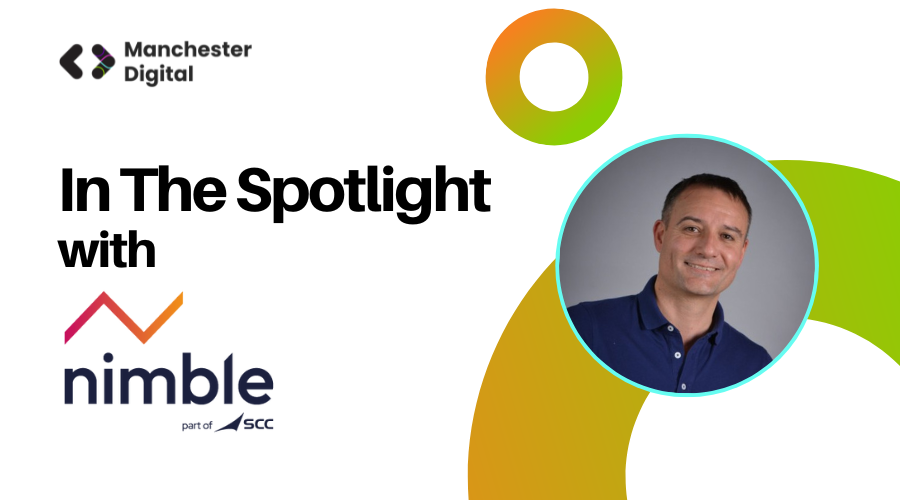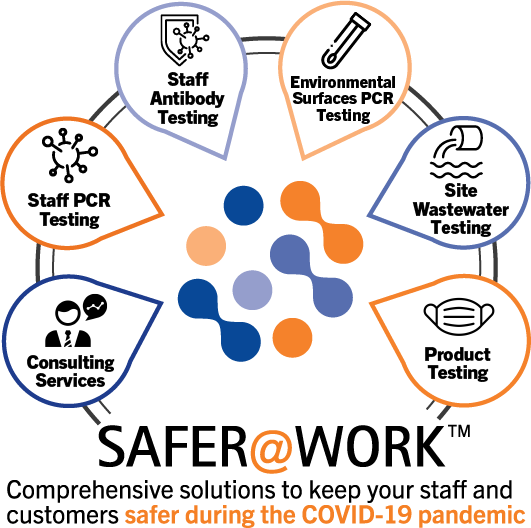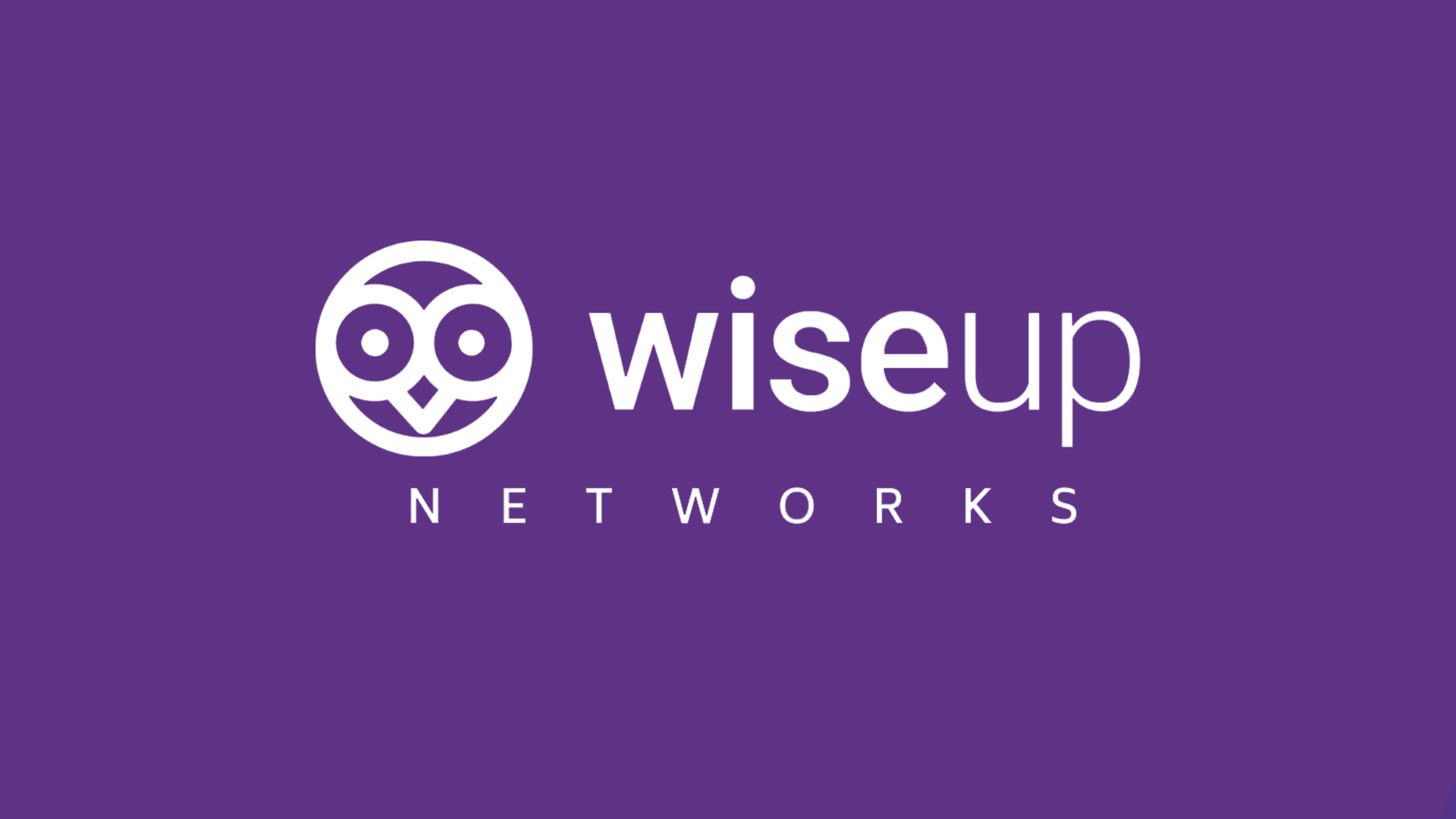
At Manchester Digital, we like to interview our members to find out a bit more about what they do and their work in the Greater Manchester digital and technology sphere. This week, we're speaking with Andrew Pitkeathly, Head of Public Sector at Nimble Approach, about their experience partnering with other SMEs to work with public sector clients.
Click here to watch Kate Wilson, Head of Community & Membership at Manchester Digital, speak to Andrew and Mark Dunwell from Clarasys about their partnership.
Can you begin by telling us a bit about yourself and the work Nimble Approach does?
I'm Andrew, Head of Public Sector at Nimble Approach, responsible for nurturing our existing client relationships, ensuring the quality of our service delivery, and driving new business growth within the public sector.
Outside of work, my wife Zahra and our energetic 8-year-old son, Kamran, keep life very full.
Nimble Approach was founded in 2016 by Chris Roberts as an agile consultancy and has steadily grown since.
We now have offices located across the UK in Manchester, Leeds, Sheffield, and Bristol. Approximately half of our 125-strong team are billable consultants dedicated to the Public Sector, a group of individuals who are genuinely motivated by the opportunity to deliver impactful and beneficial services to the public.
What are the core values that shape Nimble as an organisation?
For me, a central value at Nimble Approach is our ability to make a tangible difference, both to the professional lives of our people and, crucially, to the public through the work we undertake.
We actively cultivate an egoless environment with a flat organisational structure, fostering a strong sense of family and belonging that we invest significant time and effort in maintaining.
We strive to empower everyone who joins us to make a real impact, both on their client projects and within Nimble itself – a key driver for many choosing an SME like ours.
Unlike large Technology Consultancies burdened by excessive process, we prioritise our people, ensuring their voices are heard and valued. Our agility and responsiveness are paramount; we can act decisively and quickly, a hallmark of being a Nimble SME, free from cumbersome governance, allowing our teams, to operate with clear guardrails and make fast, informed decisions.
How does Nimble Approach tackle client challenges differently, particularly as an SME?
As an SME, Nimble offers unparalleled focus and dedication to our clients. With a select portfolio of around 10 to 15 key clients, each engagement is of significant importance, allowing us to deeply immerse ourselves in understanding and resolving their specific challenges. This commitment extends from the CEO down through the entire organisation.
Our people are deeply invested in their clients' success, treating client problems as their own. We actively encourage close collaboration, often inviting clients to our offices to experience our working culture firsthand, fostering a strong sense of partnership.
People who join Nimble are typically drawn to our SME nature and values, leading them to go above and beyond in supporting our Public Sector clients, often acting as coaches and upskilling client teams.
Our view is long-term, focused on building multi-year relationships and consistently doing what is right for the client, even if it means advising against unnecessary IT expenditure, as evidenced by our advice to a Blue Light service on process optimisation and a Central Government department on using existing resources instead of large-scale IT investment – a level of impartial advice our SME structure allows.
In your experience, why are partnerships between SMEs particularly effective?
Public sector organisations benefit significantly from the diversity that two or more SME partners bring to the table, drawing on our varied backgrounds and experiences across different clients. This blend of viewpoints helps public sector organisations arrive at more well-rounded and effective solutions.
We often find a strong alignment in core values with other SMEs, particularly around social value, how we treat our staff, and our approach to client relationships. In our partnerships, we prioritise getting to know each other's organisations and working styles.
While there's a degree of competition, there's also genuine support, with SMEs frequently collaborating on bids and maintaining friendly professional relationships. Any issues that arise are tackled swiftly with direct communication, bypassing layers of management for rapid decision-making. Our partnerships often operate on a foundation of trust that transcends the formal contract.
What key pitfalls have you encountered along the way, and what lessons have you learned?
A significant lesson for Nimble was the attempt to operate under a client's branding on projects. This proved ineffective, feeling inauthentic to our team and not resonating with the client.
We now present ourselves as Nimble Approach across all engagements. Moving forward, in any collaborative work, we would suggest all participating SMEs maintain their distinct identities.
Clear and proactive communication between SME partners before critical decisions are made is paramount. Without it, a disjointed approach can easily emerge, but this is solved with open communication channels – for instance, our instant communication via Slack with partners like Clarasys.
Why is collaboration with other SMEs so important?
Collaboration with other like-minded SMEs is absolutely key for Nimble. Winning public sector work can be challenging, but by partnering, we can secure meaningful projects that offer growth opportunities for our staff and fulfil their desire to contribute to valuable public services.
Together, we can create ecosystems of diverse partners, offering comprehensive benefits to the public sector. My personal focus over the coming years will be on fostering more of these partnership opportunities, as I firmly believe they are a win-win for Nimble, our SME partners, and, most importantly, the public sector.
What sets your approach to partnering apart from others in the sector?
Our approach is built on a foundation of transparency and trust, with genuine relationships rather than purely transactional engagements. We prioritise open communication, rapid problem-solving due to our flat structures, and a shared commitment to delivering value to the public sector.
Our willingness to maintain our own identity while respecting and promoting our partners' individuality creates a collaborative environment where each SME's unique strengths are used. Furthermore, our long-term perspective and value-driven approach ensure that partnerships are built on mutual respect and a shared goal of achieving lasting positive impact.
What do you see as the main issues and trends currently affecting the public sector?
The public sector is currently navigating a period of incredible change. My strategic plans from just three months ago have already been significantly impacted. The increased investment in defence will likely have knock-on effects for central government departments. The announced reductions in civil service numbers present a challenge to delivery, but also an opportunity for SMEs like us to help create more efficient public services that reach a wider audience.
We are considering opportunities in the defence sector, while respecting the diverse views within our team. The potential impact of the "Trump Factor" and a possible recession loom large. On a more positive note, Keir Starmer's recent announcements around AI are encouraging, and we're already seeing AI-related questions in bids. The new security standard from DSIT is a welcome development, providing a clear framework for central government. Ultimately, the key is agility and the ability to adapt – something that SMEs like Nimble are well-positioned to do.
What obstacles do SMEs face in today’s market?
Building on the broader trends, SMEs face specific obstacles. Technology Consultancies are increasingly competing for smaller contracts due to a general market squeeze, requiring SMEs to be even more competitive. Their large bid teams are a resource that SMEs typically cannot match. This reinforces the importance of collaboration, allowing SMEs to pool resources and expertise to win work that might otherwise be out of reach.
What advice would you give to other SMEs looking to work with or enter the public sector?
My single most important piece of advice is to stay true to who you are. The public sector genuinely values the unique qualities and perspectives that SMEs bring. Don't try to become something you're not. Your agility, your focus, and your values are your strengths in this market.
Thank you Andrew!
Find out more about Nimble Approach here.
Watch our video interview with Andrew here.







